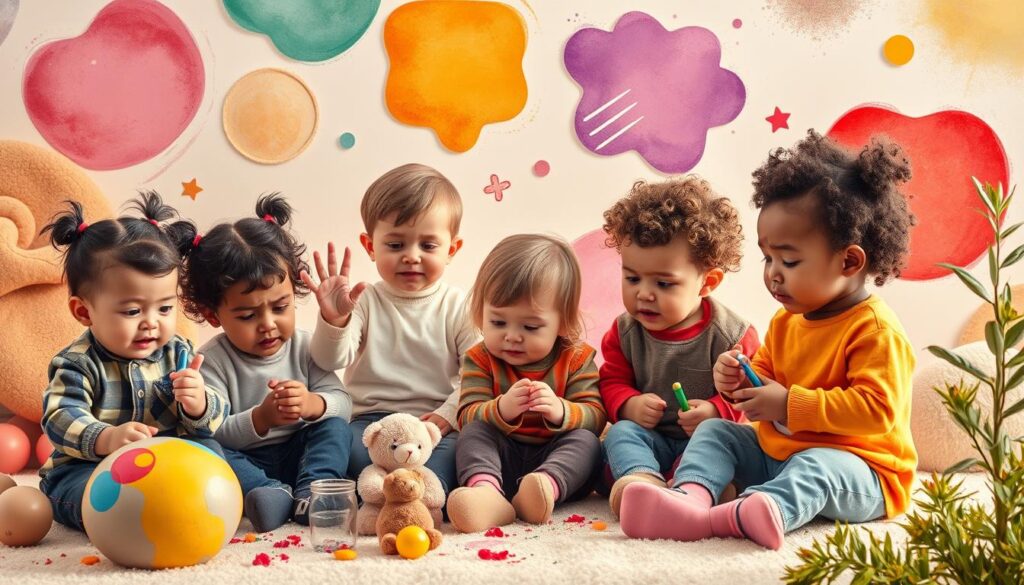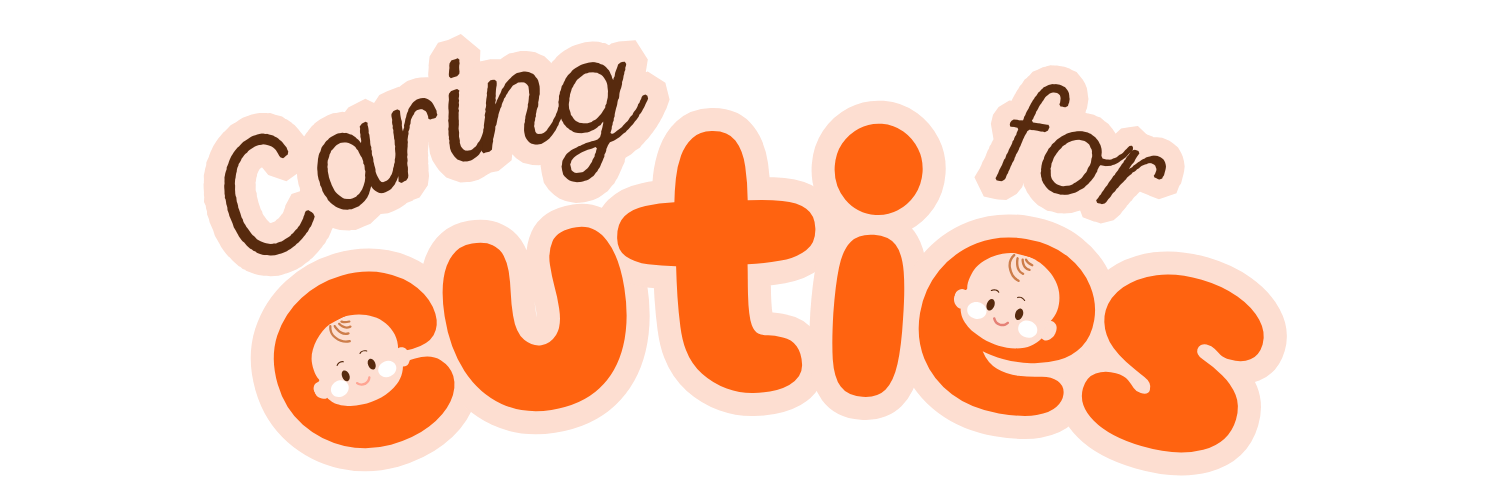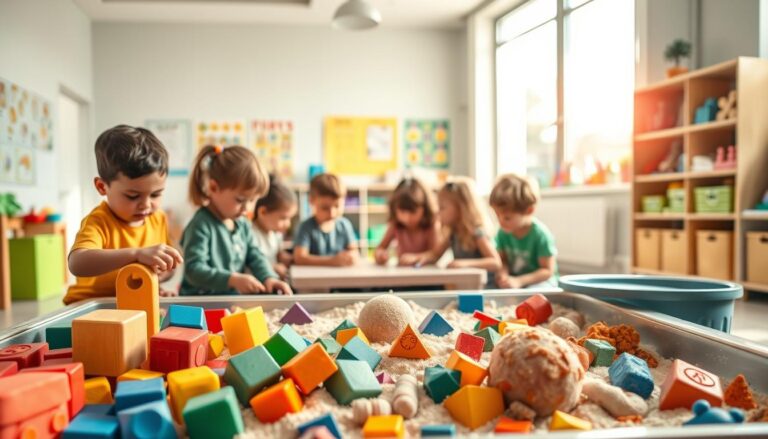Ever wondered why your toddler has big feelings? How can you help them with their emotional growth? It’s key to understand their emotions to support their emotional health and growth. Toddler emotional development is complex and shapes their future emotional skills and relationships.

As a parent, it’s vital to support your child’s emotional growth. This is linked to their overall development, including understanding their emotions and building emotional intelligence. By doing this, you help them form healthy relationships, succeed in school, and lay a strong foundation for their future.
Key Takeaways
- Supporting toddler emotional development is critical for their future emotional intelligence and well-being.
- Understanding toddler emotions can help you navigate their big feelings and provide a nurturing environment.
- Emotional intelligence in toddlers is linked to their social, emotional, and academic development.
- Toddler emotional development is influenced by brain development, language, and social interactions.
- Parents play a vital role in shaping their child’s emotional intelligence and supporting their emotional growth.
- Recognizing the signs of healthy social-emotional development is essential for identifying any issues early on.
Understanding the Basics of Toddler Emotional Development
Toddlers feel many emotions, like happiness and sadness. Social-emotional development in children is key for their growth. It helps with future relationships and success in school and life.
Studies on child development show how emotions and brain growth are connected. Toddler behavior and emotions tie to brain areas that control feelings. Knowing this helps parents teach their toddlers to handle emotions well.
Key Factors Influencing Emotional Development
- Genetic predisposition
- Environmental factors, such as parenting style and social interactions
- Brain development and maturation
Toddlers start learning to manage their feelings as they grow. Parents are key in helping them. They do this by being positive, showing good emotional behavior, and creating a caring space.
Emotional Milestones from Ages 1-3
| Age | Emotional Milestone |
|---|---|
| 1 year | Develops attachment to primary caregivers |
| 2 years | Begins to express emotions through facial expressions and gestures |
| 3 years | Starts to develop emotional regulation skills, such as calming down after a tantrum |
Knowing these emotional milestones helps parents guide their toddlers. By using parenting tips for emotional development, they build a strong base for their child’s emotional health. This sets them up for a lifetime of emotional intelligence and well-being.
Common Triggers for Emotional Outbursts in Toddlers
Toddler behavior and emotions can be tough to handle. It’s key to help them grow emotionally. Knowing what triggers their outbursts is important.
Common triggers include frustration, tiredness, and hunger. To manage these, set a daily routine. This should include regular sleep, healthy food, and fun activities. Also, create a safe and loving space for them to feel secure.
Here are some ways to prevent and handle emotional outbursts in toddlers:
- Encourage communication: Talk to your toddler about their feelings and emotions.
- Validate their emotions: Acknowledge and accept your toddler’s feelings, even if you don’t agree with their perspective.
- Offer empathy: Show your toddler that you understand and care about their feelings.
By knowing what triggers emotional outbursts and using strategies to prevent them, parents can help toddlers grow emotionally. This leads to better relationships and a stronger sense of well-being.
| Trigger | Strategy |
|---|---|
| Frustration | Encourage communication and offer empathy |
| Tiredness | Establish a regular sleep schedule |
| Hunger | Provide healthy meals and snacks |
The Role of Brain Development in Managing Emotions
Brain development is key in helping toddlers manage their emotions. As they grow, their brains get better at understanding and controlling feelings. This is vital for emotional intelligence in toddlers, helping them know themselves, manage their feelings, and get along with others.
Studies on brain growth and emotions show that the limbic system, prefrontal cortex, and language skills work together. The limbic system handles emotions, while the prefrontal cortex helps control them. Language skills are also important for social-emotional development in children, letting them share and talk about their feelings.
Limbic System Development and Emotional Regulation
The limbic system grows fast in the first three years of life. This lets toddlers handle and manage their feelings better. As it matures, they get better at controlling their emotions and growing emotional intelligence.
Prefrontal Cortex Growth and Self-Regulation
The prefrontal cortex also grows quickly during this time. This helps toddlers control their emotions. Its growth is key for social-emotional development in children, helping them understand themselves, manage their feelings, and interact with others.
Signs of Healthy Social-Emotional Development
Toddler emotional development is key to a child’s growth. Promoting emotional growth in toddlers is vital for their happiness. Signs of healthy development include empathy, self-awareness, and social skills.
When toddlers show these signs, it means they’re growing emotionally and socially.
Some signs of healthy social-emotional development in toddlers include:
- Showing empathy towards others, such as comforting a crying friend
- Demonstrating self-awareness, like recognizing and expressing their own emotions
- Developing social skills, such as sharing and taking turns

Fostering empathy in toddlers can be done through play and positive reinforcement. Parents can help their toddlers become emotionally smart and well-adjusted. As they grow, they’ll better understand and manage their feelings.
Building Your Toddler’s Emotional Intelligence
Emotional intelligence in toddlers is key for their social and emotional growth. It’s important to understand their feelings and use tips for emotional development. Teaching emotional vocabulary, modeling emotional control, and creating safe spaces for feelings are all ways parents can help.
Studies show early intervention is vital for emotional intelligence in children. Parents can teach emotional intelligence in daily life. For instance, if a child is sad, saying “You seem sad right now. It’s okay to feel sad sometimes” helps.
Teaching Emotional Vocabulary
Teaching emotional vocabulary is vital for toddlers to understand and share their feelings. Use simple words like happy, sad, angry, and scared. Talk, read, and sing songs that show different emotions.
Modeling Emotional Regulation
Showing how to manage emotions is key for toddlers. Parents should express and manage their feelings healthily. This includes deep breathing, counting, or stepping away to calm down.
| Emotion | Teaching Strategy |
|---|---|
| Happy | Labeling and validating happy emotions, such as “You seem happy today!” |
| Sad | Labeling and validating sad emotions, such as “You seem sad right now. It’s okay to feel sad sometimes.” |
| Angry | Teaching deep breathing exercises and counting to ten to manage anger |
By using these strategies, parents can boost their toddler’s emotional intelligence. This leads to better social and emotional growth. Understanding and teaching emotional development can greatly impact a child’s life.
Supporting Your Child Through Emotional Moments
As a parent, it’s key to support your child’s toddler emotional development during emotional times. Stay calm, validate their feelings, and offer comfort. Studies show emotional validation is vital for social-emotional development in children.
Effective parenting tips for emotional development include active listening and empathy. Giving your child your full attention makes them feel heard and understood. This helps them develop emotional regulation and resilience. Here are ways to support your child:
- Stay calm and composed, even when your child is upset
- Validate their feelings by acknowledging and accepting their emotions
- Provide physical comfort, such as hugs or cuddles, to help them feel secure
- Use simple and clear language to help them understand and manage their emotions
By following these parenting tips for emotional development, you can boost your child’s emotional intelligence and well-being. Remember, supporting your child’s toddler emotional development is a continuous journey. It needs patience, understanding, and empathy.

The Connection Between Play and Emotional Growth
Play is key for kids, helping them grow emotionally. It lets them show feelings, understand others, and control their emotions. Parents can use play to help kids reach emotional milestones, like knowing and feeling different emotions.
Studies show play boosts emotional growth, teaching empathy and social skills. Here are ways to encourage emotional growth through play:
- Role-playing emotions, which helps children understand and express different feelings
- Using art and music for expression, which provides an outlet for children to convey their emotions
- Physical activities for emotional release, such as running or dancing, which can help children manage stress and anxiety
By giving kids chances to play, parents build a strong emotional base. This helps kids deal with life’s ups and downs. It leads to better relationships and a happier life.
When to Seek Professional Support
As a parent, knowing when your child needs extra help is key. If your child has ongoing tantrums or trouble controlling their feelings, it’s time to get help. Toddler emotional development is vital, and acting early can greatly improve their emotional health.
Some signs your child might need professional help include:
- Intense or frequent emotional outbursts
- Difficulty forming or maintaining relationships with others
- Significant changes in appetite, sleep patterns, or other daily habits
There are many resources to help your child’s parenting tips for emotional development. Getting professional help can help you understand your child’s emotional needs better. It’s a sign of strength to seek help for your child’s emotional well-being.
Research shows early help can greatly impact a child’s social-emotional development in children. A professional can help you:
- Find out why your child is feeling upset
- Create plans to help them manage their feelings
- Improve your child’s emotional smarts and happiness
If you’re worried about your child’s emotional health, don’t wait to ask for help. With the right support, your child can grow up happy and emotionally strong.
| Age | Emotional Milestone | Support Strategies |
|---|---|---|
| 1-2 years | Developing emotional regulation | Positive reinforcement, emotional labeling |
| 2-3 years | Enhancing emotional intelligence | Role-playing, storytelling, empathy building |
Recap
Understanding toddler emotional development is crucial for fostering their emotional intelligence and overall well-being. By recognizing the signs of healthy emotional growth and implementing supportive strategies, parents can help their toddlers navigate big feelings effectively. This nurturing approach lays a strong foundation for their future relationships and success in life.
Conclusion: Nurturing Your Toddler’s Emotional Journey
As your toddler explores their emotions, you are key in their journey. By helping them understand their feelings, you support their happiness and future success. This is a big responsibility, but it’s also incredibly rewarding.
Studies show that kids with strong emotional skills handle stress better and make deeper connections. They also do well in school and life. By focusing on your toddler’s emotional growth, you’re giving them a strong foundation for life.
Keep supporting your toddler’s emotional growth by celebrating their successes and helping them through tough times. It’s also important to show them how to handle emotions by being a good role model. With love, patience, and understanding, your child will grow into a confident, emotionally smart person.
FAQ
What causes big feelings in toddlers?
Toddlers feel many emotions, like happiness and anger. These feelings come from growing up and changes around them. Things like new routines or too much noise can also affect them.
How does brain development impact a toddler’s ability to manage emotions?
The brain’s growth is key for managing feelings. As the brain matures, toddlers can better control their emotions. They learn to express their feelings with words.
What are the signs of healthy social-emotional development in toddlers?
Signs of healthy development include showing many emotions and caring for others. Toddlers should also play well together and feel close to their caregivers.
How can parents build their toddler’s emotional intelligence?
Parents can teach emotional vocabulary and show how to handle feelings. Creating a safe space for feelings is important. Play and art help toddlers express and understand their emotions.
When should parents seek professional support for their toddler’s emotional development?
Seek help if your toddler is always upset or shows big behavioral problems. A doctor or therapist can help. They offer advice and support for your child’s emotional health.





